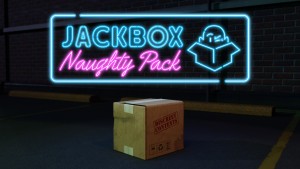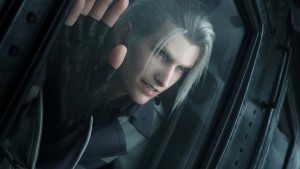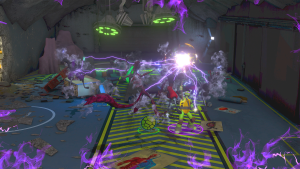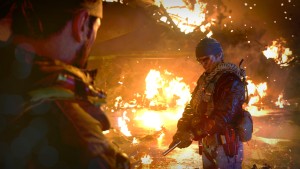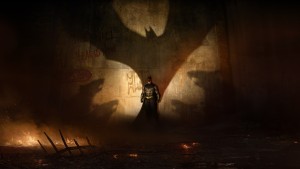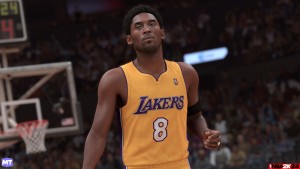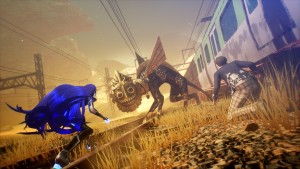Please support Game Informer. Print magazine subscriptions are less than $2 per issue
Opinion: Marvel Needs To Fix Its Gaming Division

Over the last several years our culture has experienced a superhero renaissance. Marvel Comics has helped lead this push with its foray into the motion pictures industry, creating one of the most consistent theatrical runs since Pixar and Alfred Hitchcock. A few decades ago, only the most elite geek would talk about Mjölnir hammers, Mark 42 armor, and vibranium shields, but now nearly everyone in America seems to have a cursory knowledge of Marvel Comic’s universe of heroes. This has been a boon for comic book nerds, who are currently reveling in their favorite pastime's newfound popularity. However, Marvel won’t been able to keep this gravy train rolling forever, and if it wants to stay relevant in the pop culture sphere in the future, it will need to make a bigger push into the game space.
What made Marvel successful in the first place?
Comics were the video games of the early 20th century – they used to be a pop culture phenomenon. Kids of the '20s, '30s, and '40s devoured comics more than any other form of media. Publishers would regularly sell millions of copies of each issue (and this was during a period when the U.S. population was a third of what it is today). Kids across the country loved comics, but some adults felt that the comic book medium was corrupting the country's youth. I'll spare you the details, but the fact is that the comic industry experienced a massive crash and has never fully recovered. However, Marvel Comics helped create a mini-boom in the '60s when it developed heroes with real flaws. Unlike the shiny boy scouts from other comic companies of the day, Marvel's heroes were more like the monsters from the horror comics of the '40s and '50s – they were sometimes ugly, sometimes gruff, and sometimes didn't want to be heroes. Marvel created a series of characters that had real depth, such as Spider-Man, the Fantastic Four, Iron Man, the Incredible Hulk, the X-Men, as well as dozens of others
...but you probably know all of this already, because these characters have grown so popular that even their creation has been well-documented at this point. And that is the point. Marvel's comic heroes have transcended their birth medium. The product that Marvel Comics produces isn't comic books, it's comic characters.
Marvel has an amazing wealth of intellectual properties, but they're being wasted on free-to-play mobile titles and a series of pinball tables that do nothing to push the industry forward. In short, the characters that once saved the comic industry and helped spark a renaissance in the film industry are lying fallow in one of the largest branches of the entertainment industry.
The problem with Marvel's Games.
It's not like people haven't tried to make good games based off Marvel's properties. Over the years we've seen some great titles, such as Marvel: Ultimate Alliance, The Incredible Hulk: Ultimate Destruction, and the Spider-Man 2 movie game. Unfortunately, Marvel's hits are few and far between, and have been scattered between duds like The Fantastic Four, The Punisher: No Mercy, and the Iron Man 2 movie game. Marvel's rich characters are ripe with gaming potential, but it seems like Marvel doesn't care much about the game space. After licensing out a few poorly-received games based off the Captain America, Thor, and Iron Man films, the company seems to have decided that full-blown retail releases weren't worth their time or money and shifted focus towards cheaper mobile games like Marvel Puzzle Quest and X-Men Battle of the Atom.
To be fair, Marvel-based video games are largely Disney's purview now, but Disney Interactive is an inconsistent game publisher (i.e. Epic Mickey) and has recently struggled to utilize the Marvel license as well (i.e. Disney Infinity 2.0: Marvel Super Heroes). In fact, Disney has made a bigger deal about utilizing its Star War's license in the game space than anything Marvel related. Sadly, Disney is grossly underutilizing one of it's biggest brands.
It doesn't have to be this way. If you poll gamers about the best comic book-based video games of all time, the Batman Arkham games would easily float to the top. It would be easy to say that Disney should copy the Arkham formula, but that's a lot harder in practice. Plus, gamers don't really want Marvel games that are carbon copies of the Arkham series. For one, that formula wouldn't work for every hero on Marvel's Roster. But more importantly, the Arkham games have already been made. Marvel needs is to find some developers who are as passionate about the source material as Rocksteady Studios was about Batman, and it needs to find a team of designers who are equally as talented. Unfortunately, that's also easier said than done.
I don't have all the answers.
I know that talking about making games is a lot easier than making games, but it seems like Disney and Marvel aren't making a wholehearted push into the game space, and I'd like to see them try. For starters, Marvel could go back to its well of successful game franchises (such as Marvel: Ultimate Alliance) and give us some long-desired sequels. Secondly, it could team up with some renowned publishers who know how to make a game and give us some innovative gems with a caliber similar to Batman Arkham City. What if Naughty Dog made a Spider-Man game? What if Bethesda made a massive X-Men RPG? What if Rockstar made an open-world Punisher game? Some of these ideas would never see the light of day, but many high-profile developers are eager to work on game's starring their favorite comic heroes. Unfortunately, when a good developer has a chance to work on a licensed property they are often given a low budget and a short timeline, which is what happened with High Moon's Deadpool. Let's stop doing this and give video game properties the respect they deserve.
In the end, what will make Marvel's games successful is what has always made Marvel popular. Its characters have real value in our lives. I don't just mean monetary value; these heroes have resonated and emotionally impacted millions of fans for several decades. We've grown to love them and they are important to us because they tell stories that impact us emotionally and inspire us to be better people. That's what I mean by value. This value should be upheld in the gamespace; right now it's being mishandled.


